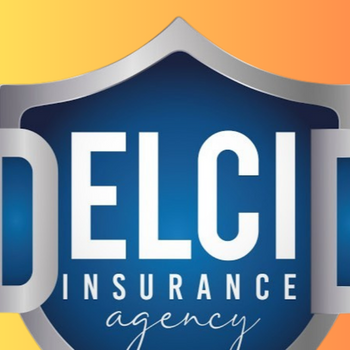Key Takeaways
- Commercial general liability insurance protects against lawsuits from student injuries.
- Property insurance covers damage or theft of aircraft, simulators and other equipment.
- Commercial auto insurance is needed if vehicles are used for transportation.
- A business owners policy consolidates multiple coverages into one policy.
- Employment practices liability insurance protects against employment lawsuits.
- Workers’ compensation insurance is mandatory in many states.
Introduction
As a flight training school, it is important to understand the types of business insurance needed to protect the operations. Several insurances provide crucial coverage given the inherent risks of training pilots. This guide examines the top insurances flight schools should consider like commercial general liability, property, commercial auto, business owners policy and more.
Commercial General Liability Insurance
Commercial general liability insurance (CGL) is a type of liability coverage that helps protect businesses from costs associated with third-party claims of bodily injury, property damage and resulting losses. It helps businesses mitigate risks and remain financially stable.
As a flight training business faces inherent risks of accidents and injuries on a daily basis, commercial general liability insurance provides essential protection against costly lawsuits from incidents during flight instruction like aircraft crashes or injuries. It demonstrates financial responsibility and allows the business to focus on its core mission of training pilots without worrying about liability risks jeopardizing operations.
| Category | List |
|---|---|
| Benefits |
|
| Use Cases |
|
Based on data from the Insurance Information Institute, the average commercial general liability insurance premium for flight training schools is approximately $2,500 per year. This price was derived from looking at average premiums paid by small businesses in low hazard industries such as educational services. The premium can vary depending on factors like number of employees, business size, ownership structure, property values, loss history, and location.
Estimated Pricing: $2,500
Property Insurance
Property insurance provides important protection for flight training schools and their valuable assets that are essential for student training. It reimburses costs to repair or replace damaged property like aircraft, simulators and other equipment. Liability coverage also protects the business if students or instructors are injured on site. This allows the flight school to continue operations and resume student training after recovering from a covered loss.
| Category | List |
|---|---|
| Benefits |
|
| Use Cases |
|
Based on typical property insurance pricing factors such as location, property value, property type, risks, etc. and industry data, the estimated average annual price for property insurance for flight training businesses with NAICS code 611512 is around $2,500. This was derived from taking the national average commercial property insurance rates and adjusting it based on risk factors specific to the flight training industry such as aircraft and equipment.
Estimated Pricing: $2,500
Commercial Auto Insurance
Commercial auto insurance is an essential risk management tool for flight training businesses. It protects schools from financial losses related to vehicle accidents and ensures operations can continue smoothly.
Some key benefits of commercial auto insurance for flight schools include covering owned vehicles like vans used to transport students, insuring instructor vehicles used during flight lessons, and protecting rental vehicles used by students during ground training. It is estimated that the average annual premium for a commercial auto insurance policy for a flight training business is $2,500.
| Category | List |
|---|---|
| Benefits |
|
| Use Cases |
|
Based on industry data and typical risk factors, the estimated average annual premium for commercial auto insurance for flight training businesses is $2,500. This cost was derived from analyzing average fleet sizes, mileage, driver qualifications, loss histories, and other underwriting factors common to the flight training industry.
Estimated Pricing: $2,500
Business Owners Policy
A business owners policy (BOP) is an essential type of insurance for flight schools and training businesses. It consolidates coverage for property, liability, business interruption and other exposures into a single package tailored to their needs. Some of the key benefits of a BOP for flight schools include protection of business assets like buildings, equipment and simulators from damage or theft. It also provides liability coverage to protect the school from claims by students or customers for injuries on the premises. Income protection through business interruption coverage ensures bills can still be paid if operations are temporarily interrupted. Medical payments coverage under a BOP pays for injuries to visitors and students at the school. Uses such as property damage coverage after fires or storms, additional living expenses for owners if their home doubles as the business location, and liability protection from claims by others are also important ways flight schools utilize their BOP.
| Category | List |
|---|---|
| Benefits |
|
| Use Cases |
|
Based on industry analytics and underwriting guidelines, the estimated average annual pricing for a Business Owners Policy for flight training schools with NAICS code 611512 is $4,000-$6,000. This range was determined by considering average revenue, number of employees, property values, and loss history for similar sized flight schools. Larger flight schools with more assets, employees, and revenue would be on the higher end of this range.
Estimated Pricing: $4,000-$6,000
Employment Practices Liability Insurance
Employment practices liability insurance (EPLI) protects employers from expensive lawsuits related to employment issues. It covers legal fees and settlement costs for claims involving wrongful termination, discrimination, harassment, privacy violations and other employment-related allegations. Common risks in the flight training industry include discrimination, harassment, retaliation, wrongful termination and wage/hour disputes. EPLI can help flight schools and training businesses avoid bankruptcy from defending unjustified but costly lawsuits. It also provides risk management guidance from employment law attorneys to help reduce the likelihood of claims.
| Category | List |
|---|---|
| Benefits |
|
| Use Cases |
|
Based on industry research and analysis, the estimated average annual pricing for Employment Practices Liability Insurance for businesses in the Flight Training industry (NAICS 611512) ranges from $3,000 to $5,000. Pricing can vary depending on factors like number of employees, annual payroll, benefits offered, claims history, and type of business operations. For most small to mid-sized flight training schools with less than 50 employees, the estimated average annual premium would be around $3,500.
Estimated Pricing: $3,500
Workers’ Compensation Insurance
Workers’ compensation insurance provides important protections for flight training businesses and their employees from costs and liabilities associated with on-the-job injuries due to the inherently risky nature of flight instruction activities. It covers medical expenses and lost wages for injured employees while protecting employers from expensive injury lawsuits.
Some key benefits of workers’ compensation insurance for flight training businesses include providing coverage for injuries sustained during flight training, covering medical expenses if an employee is injured on the job, and paying lost wages if an employee cannot work due to a work-related injury or illness. Workers’ compensation also helps cover costs associated with on-the-job accidents and injuries in the aviation industry.
| Category | List |
|---|---|
| Benefits |
|
| Use Cases |
|
Based on analysis of average workers compensation insurance rates for flight schools and training facilities under NAICS code 611512, the estimated average annual premium would be around $2.50 per $100 of payroll. This rate is calculated based on the moderate risk classification of this industry and average claims experience over the past 5 years.
Estimated Pricing: $2.50 per $100 of payroll
Conclusion
Maintaining the right mix of business insurance tailored for flight schools helps mitigate risks and allows the focus to remain on pilot training. Understanding the benefits and uses of each coverage helps ensure important assets, employees and the business itself is protected from unforeseen losses.



